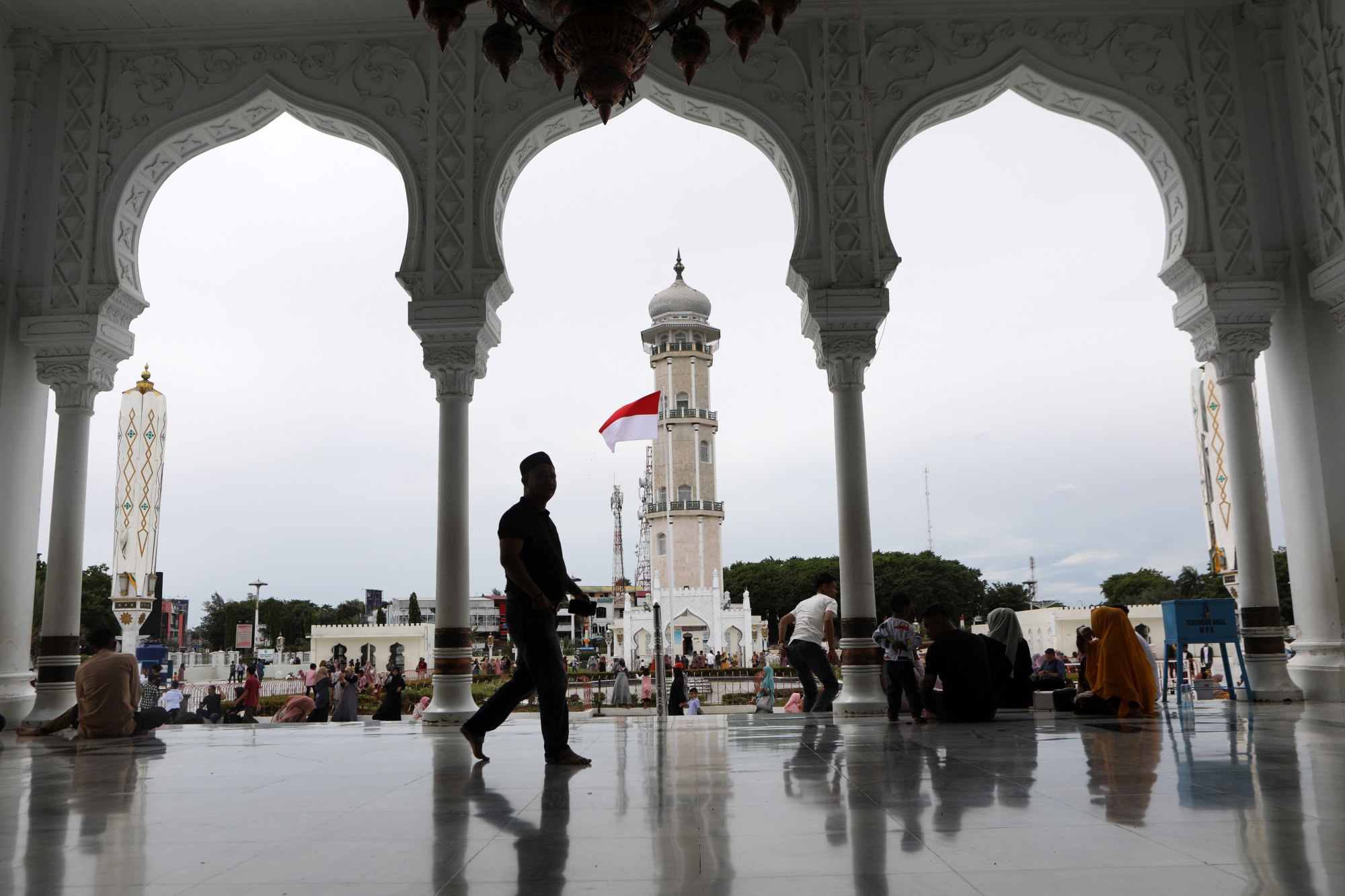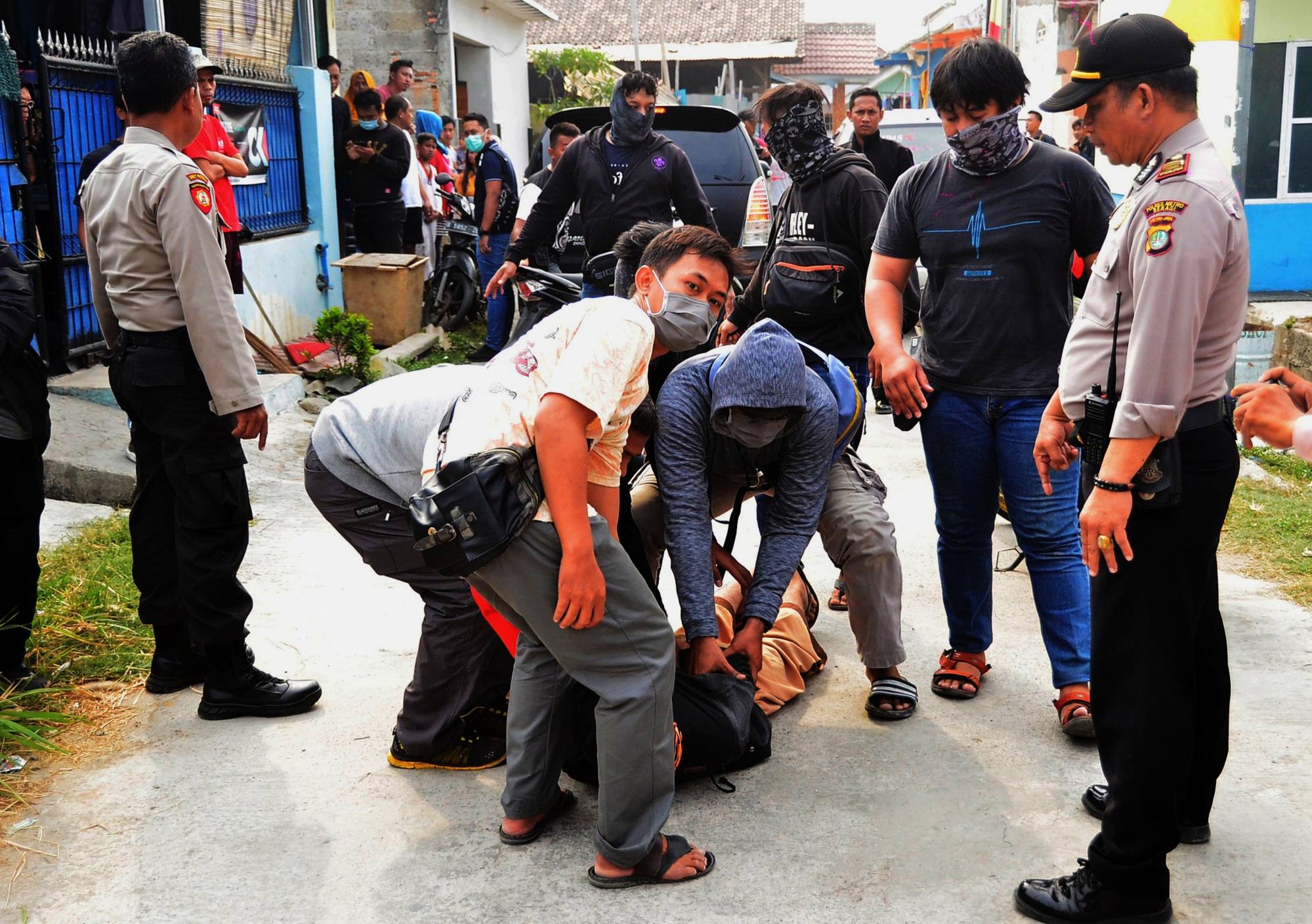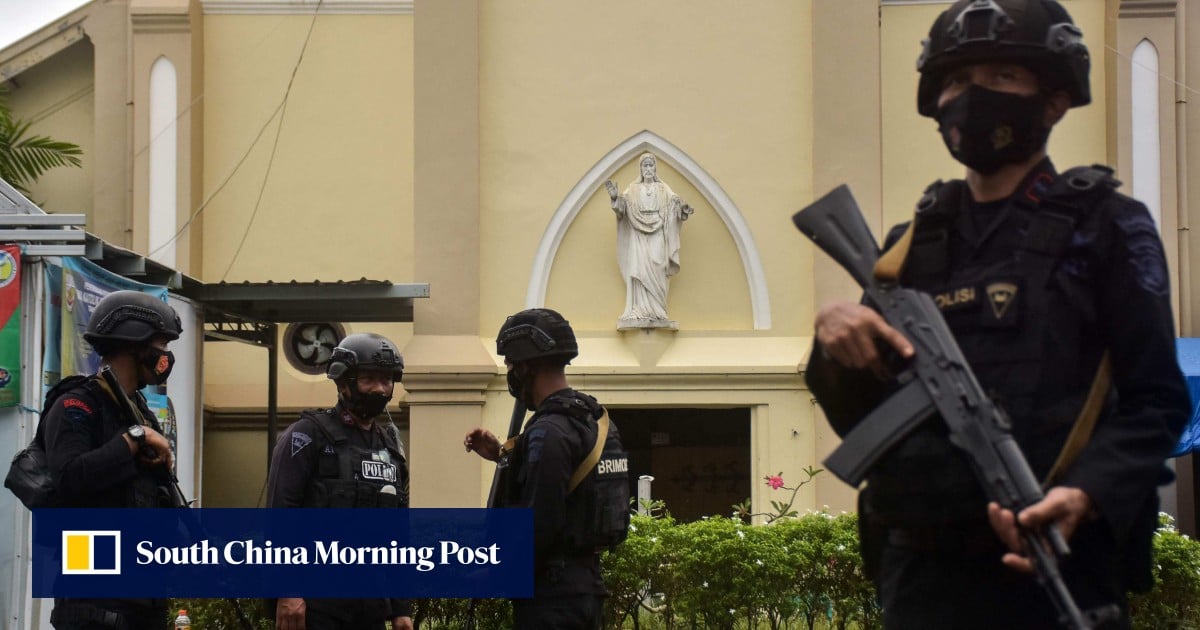According to the UK government’s statistics, it spent £352 million (US$435.9 million) on CSSF worldwide in 2023, up from the £307 million in 2022. The programme’s stated aim is tackling “conflict, stability and security challenges overseas which threaten UK national security”. It supports more than 90 programmes worldwide through a combination of development aid and security efforts.
The IPP is an extension of the United Kingdom’s own Prevent programme, first introduced in 2003, and described as a government-led, multi-agency initiative that “aims to stop individuals becoming terrorists”.
Rights advocates have accused it of unfairly targeting Muslim communities and encouraging professionals, such as teachers and National Health Service employees, to report suspected radical behaviour, creating an atmosphere of paranoia and bias.
“The most recent available figures show the UK spends up to £7 million a year on its IPP, though the true figure could be much higher,” Smith said.
In July 2023, RSI requested data on counter-extremism cooperation with Indonesia from the Foreign, Commonwealth and Development Office (FCDO) under the Freedom of Information Act 2000.
“But the FCDO refused to grant our request, citing national security concerns and a desire to protect international relations,” Smith said.
The British embassy in Jakarta did not respond to a query from This Week In Asia on the same subject.
RSI said Britain had deliberately “exported” Prevent to Indonesia as part of its post-Brexit geopolitical outreach.
“Post-Brexit, the UK sees Indonesia as a key strategic ally for its political and economic engagement in Southeast Asia,” Smith said.
This, he claimed, led to the creation of the National Action Scheme for the Prevention and Mitigation of Violence-Based Extremism and Terrorism (RAN PE), signed into law by President Joko Widodo in 2021.
Indonesian militants ‘infiltrating’ state institutions to create caliphate
Indonesian militants ‘infiltrating’ state institutions to create caliphate
The RSI report detailed allegations from Indonesian human rights groups who argued that counter-extremism programmes had been “misused to marginalise religious minorities and suppress peaceful calls for Papuan independence by accusing them of supporting terrorist groups”.
The report highlighted the 2018 launch by Indonesia’s Attorney General Office of Smart Pakem, a downloadable app through which citizens can report “suspicious activities”. The app also has a list of “religious faiths which deviate from the six officially recognised religions”.
“The UK must be aware of the religious oppression and allegations of deadly violence, as well as ‘counter-extremism’ apps that tell people to spy on their neighbours – yet, it remains an enthusiastic partner,” the report said.

Andreas Harsono, a researcher for Human Rights Watch (HRW), acknowledged the potential human rights violations programmes such as Smart Pakem could cause, but said religious minorities in Indonesia had bigger problems than a snitching app.
“Indonesia’s insistence on keeping our blasphemy law, almost always used against religious minorities, poses a greater threat to their freedom,” he said, referring to a law that criminalises deviations from the central tenets of the country’s six officially recognised religions – Islam, Protestantism, Catholicism, Hinduism, Buddhism, and Confucianism – with penalties of up to five years in prison.
Greg Barton, a scholar specialising in modern Indonesia and terrorism, said there was insufficient evidence to assert that RAN PE was based on the UK’s Prevent programme.
He argued that both Indonesia and Britain faced markedly different types of challenges in terms of terrorism and extremism, and that abuses under Indonesia’s counter-extremism programmes should be seen as localised incidents.

“Whilst these problems and abuses should not be lightly dismissed, they don’t reflect the situation across the rest of Indonesia,” said Barton, chair in Global Islamic Politics at Australia’s Deakin University.
Smith, however, said during RSI’s research, one informant, who served on the parliamentary drafting of RAN PE, testified to having seen a copy of Prevent, along with similar legislative products from EU countries, being consulted throughout the proceedings.
“Unfortunately, I cannot provide the name of this source; we chose to make all participants in the consultation process anonymous to ensure candour.”
Unconvinced, Barton said it was “normal practice” for regulation drafters to refer to similar legislation passed by other nations to create a matrix for a new one.
“But ultimately, Indonesian legislators came up with a law best suited to their own terrain, which makes copying Prevent unlikely.”

Irfan Idris, deradicalisation director at Indonesia’s National Counterterrorism Agency (BNPT), said he was aware that civil rights groups helped keep the government accountable, but it was officials working on counter-extremism who had to make difficult decisions on a daily basis.
“The threat of radicalisation is present and real. They used to target young men but now they are targeting young women and children.”
He defended the Indonesian government’s record on human rights, claiming “our apparatus always tries to abide by the law”.
“But terrorism, which is an extraordinary crime, often needs extraordinary measures. There may have been oversights along the way but, overall, Indonesia is a success story when it comes to preventing terrorism,” he said.

Andreas at HRW, while concurring that Indonesia’s counter-extremism strategy was working, said it had come at the expense of minority rights, adding the passage of the new criminal code in 2022 was a good example.
“The new code contains oppressive and vague provisions that open the door to invasions of privacy and selective enforcement that will enable the police to extort bribes, lawmakers to harass political opponents, and officials to jail ordinary bloggers.”
Widodo signed the new criminal code into law in 2023, but it will not take effect until 2026.
Is Indonesia headed in an ‘authoritarian direction’ with new criminal code?
Is Indonesia headed in an ‘authoritarian direction’ with new criminal code?
Irfan said his agency and the government would take all criticism of the conduct of counterterrorism and counter-extremism programmes into consideration.
“Nonetheless, our work continues. BNPT cracks on despite dwindling direct funding from the state coffers. We try to prevent the birth of new terrorists by empowering target groups: women and the disadvantaged.”
In its report, RSI recommended that the UK government “scrap its Prevent International Programme … strictly adhere to the letter and spirit of its own human rights obligations, and not enable other countries to violate theirs”.
Barton, however, cautioned it would be a misstep for Western democracies not to engage with countries such as Indonesia on counterterrorism.
“It definitely would not improve matters, imperfect as they are. In fact, it would make things worse.”


